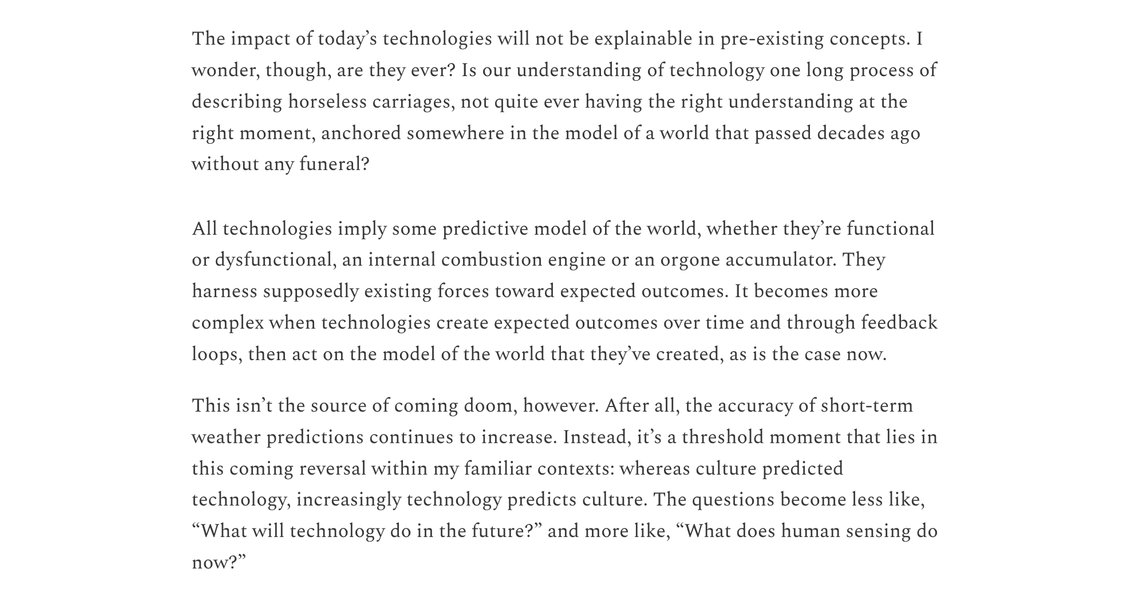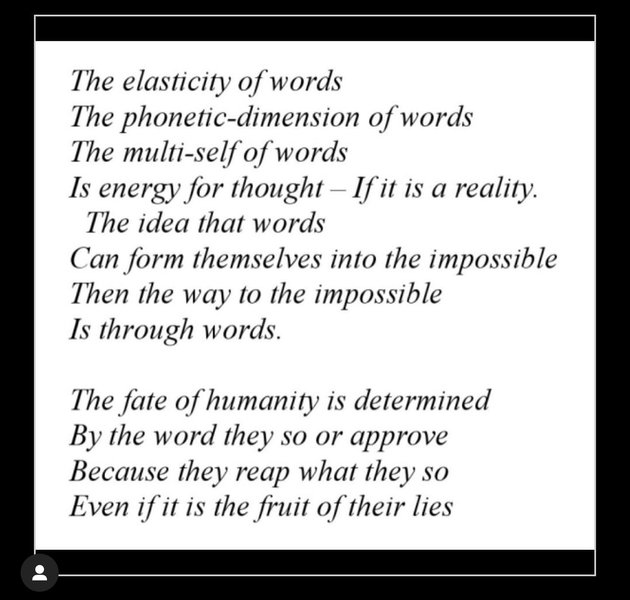aron
@aronshelton
aron
@aronshelton
No matter how many people come over for dinner, you’re only going to be able to engage with a few.
And no matter how big the crowd in the arena, the musicians can only see the faces of a few hundred.
An investor can only be engaged and smart about a very small number of companies.
And it doesn’t matter how many students are in the class, the teacher
... See moreIn the end, one can see collective curation to be the path moving forward, and to go back to biblical prophecies mentioned prior, if biting from the “forbidden apple” made us Godlike, maybe the fault was in the individualistic approach to “an all encompassing being” -the internet has given us the opportunity to become enlightened communities, if we
... See more
Animating Questions and Humans In The Loop
The questions become less like, “What will technology do in the future?" and more like, "What does human sensing do now?"

provocations and Wordplay
If you want to be read in the future, make sure you would have been read in the past. We have no idea of what’s in the future, but we have some knowledge of what was in the past. So I make sure I would have been read both in the past and in the present time, that is by both the comtemporaries and the dead. So I speculated that books that would have been relevant twenty years in the past (conditional of course of being relevant today) would be interesting twenty years in the future.
a Note is something to consider, a Post is something to inhabit. - visakan veerasamy